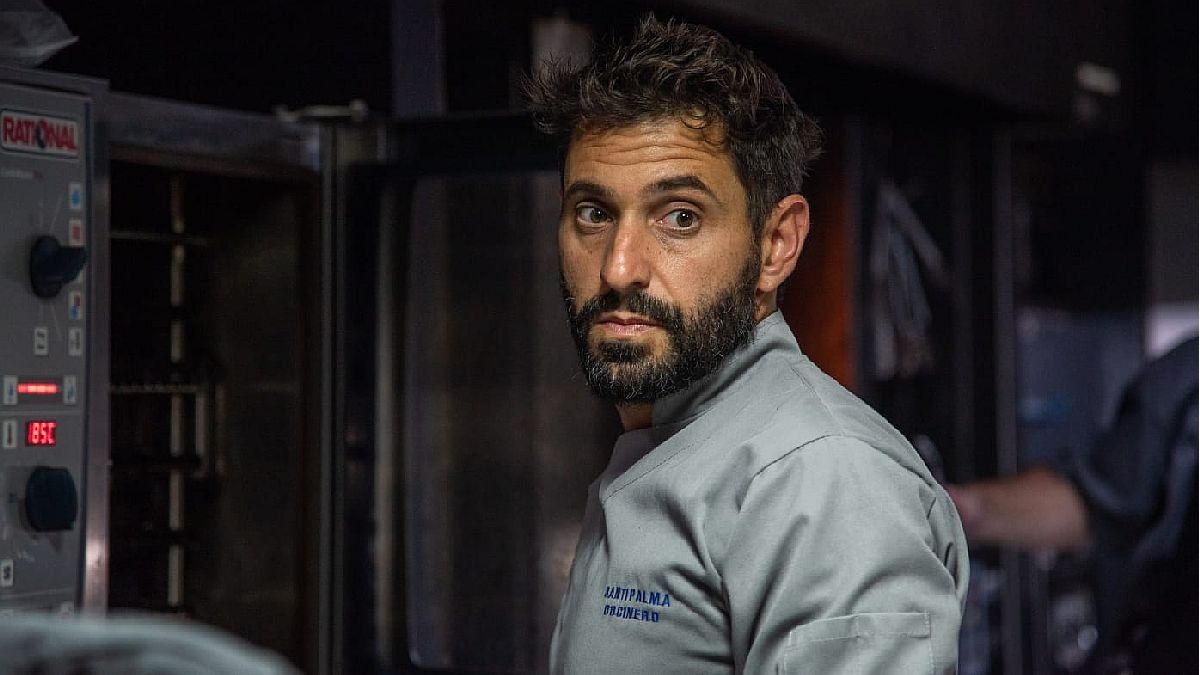In his city, La Plata, in 2010 he opened his small “Atelier”a restaurant behind closed doors that later became Kitchen & Cava Ateliera City Bell fine dining restaurant.
Currently, he is the chef-owner of Moorish Farm & Fondasince 2017. He printed his name on Palma Bistro, in the exclusive Parador Amarras de Costa Esmeralda, in Pinamar. He is also executive chef at Sua Catering and in the new platense wine bar Taken house.
Your new culinary adventure is Nina The Fireswhere he returned to the adventure of haute cuisine, making it beat in the heart of City Bell.
Journalist: Are Argentine chefs among the most creative internationally? Does the diversity of local products favor this creativity?
Saint Palma: I think that Argentine chefs are very creative and ingenious. The diversity of local products favors creativity and helps us when creating dishes and menus, they allow us to play a lot.
Q.: What ingredients could never be missing in the diet of an Argentine?
SP: Although the vegetarian and vegan world is clearly growing, I believe that most Argentine dishes cannot miss meat, potatoes and the so-called classic dishes: milanesas, milanesas napolitana, pizzas, etc. We have a lot of influence from our grandparents and origins in general and that gives us a wide variety of dishes where we can enjoy a little bit of everything.
I think that as Argentines we have to start getting to know the products from all over the country, and we shouldn’t be lacking in being able to taste and work with all those ingredients. Today we cannot miss the original product of our country and that serves us to revalue our kitchen.
Q.: Does food health matter when thinking about and creating a dish or menu?
SP: Yes, of course it matters, I always keep it in mind, that no matter how much it is a fried milanesa, if it is with the correct temperatures of the oil, that it be an oil in good condition, so that it is as healthy as possible, it is something that never should lose sight of.
image.png
Q.: What do you think is the most distinctive feature of your kitchen?
SP: I think I am lucky to be in charge of different places where I look for gastronomic proposals to be quite different, so I think that one feature of my work is the very versatility of the different types of product. Perhaps with the same ingredient, you achieve 2 or 3 different preparations in each place and that is something that I like and distinguishes. I really like to cook fish, meat and something that I always highlight is my variety of croquettes or fritters that in general everyone likes a lot, along with purees. For a long time I have been playing with the purees of different vegetables: carrot, cauliflower, broccoli, peas, beets and it is something that people celebrate a lot. The textures of those purees, the flavors, the colors.
Q.: If you weren’t a cook, what would you be?
SP: It’s hard to know, but I can tell you that at the time I had to define which way to go, I was between cooking and architecture. I have also dedicated a lot of time to acting and now I am returning to that path. Surely it had to do with art.
Source: Ambito
David William is a talented author who has made a name for himself in the world of writing. He is a professional author who writes on a wide range of topics, from general interest to opinion news. David is currently working as a writer at 24 hours worlds where he brings his unique perspective and in-depth research to his articles, making them both informative and engaging.




